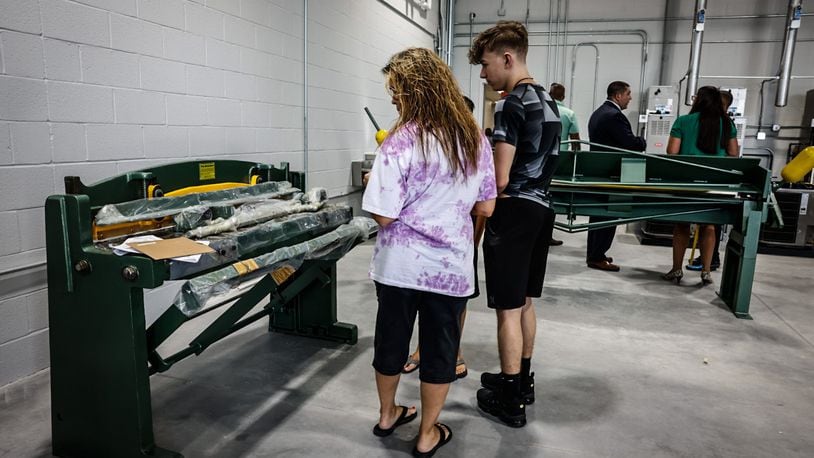Right now, students in career tech programs either attend a high school that already has a career technical education component, like Beavercreek or Kettering, or they apply and go to a career tech center, which involves leaving their main campus and going to another.
That can be hard on high school students. If the student doesn’t have a car, going to the other campus means getting on a bus to the main school, then climbing on another bus to the career tech school. Career tech centers don’t have traditional high school experiences like prom or school plays.
“What we’re trying to do is make certain that even the kids who don’t get the chance to go there still have some of those opportunities,” said Shannon Cox, superintendent of the Montgomery County Educational Service Center.
That can look like satellite programs at other high schools, like what Miami Valley Career Technology Center has done with Huber Heights. MVCTC is funding a program and new career tech center at Wayne High School.
Credit: JIM NOELKER
Credit: JIM NOELKER
“I think there’s a concern about leaving their home building and going out to the career center where you’re mixed in with students from all over the region,” said Huber Heights superintendent Jason Enix. “So I think the opportunity to get career tech programming, but never having to leave the high school campus, has made a really big impact on number of kids that are interested in that programming.”
Miamisburg schools recently announced a career tech program at their middle school that would give students an opportunity to explore some of the careers offered at a career tech center.
Proponents of career tech say it also needs to be promoted at the earliest grade levels.
Right now, students are first exposed to career tech in middle school or early high school. But business leaders and education experts say kids should be exposed to career tech even earlier, in grade school, with experiments and books that display career options that kids might not know about.
The Greene County Career Center provided students across Greene County in grades kindergarten through five with books, experiment sets and programming tools that were meant to help teachers talk to students about possible career tech jobs.
Career tech is an addition to the traditional high school experience, but it also needs to be expanded to satellite programs and other ways of involving students in their futures, Cox said.
“It’s not just about training people for careers,” Cox said. “We want to make sure that they actually have the skills that they need to be a thriving workforce member in our in our community. In order to do that, we can’t just depend on career tech centers.”
About the Author
